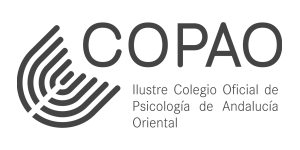Speaker

GIAN PIERO TURCHI
UNIVERSITY OF PADOVA. ITALY
Academic titles
2024 – ongoing: Academic Board Member of the PhD Program ‘Human rights, society, and multilevel governance’, Curricula ‘Inclusion and Psychological Growth’
2023 – ongoing: Director of the first-level Specialization Degree in ‘Data Science and Data Management. Methodologies and tools for using textual data’
2006 – ongoing: Director of the second level Specialization Degree in ‘Mediation and Restorative Justice. Methodology and tools for the application in the familiar, penal, community, organizational and commercial fields’
2004 – ongoing: Associate Professor for University of Padova, lecture of ‘Clinical Psychology’ and ‘Psychology of Cultural Differences and Clinical Psychology of Deviant Behavior’
Projects
2024 – ongoing: Scientific Coordinator of the research and intervention project “NetGuardian”, aimed at developing an AI-based app for measuring the degree of exposure to the risk of cyberbullying in online chats, in order to effectively manage the phenomenon (actual and potential) among young people
2022 – 2023: Scientific Coordinator of the project “Vale”, aimed at evaluating the effectiveness of a psycho-educational cyberbullying awareness intervention in secondary schools
2020 – ongoing: Scientific Coordinator of ‘Hyperion – Observatory for community Social Cohesion’, aimed at analyzing the degree of community cohesion in emergencies managements, with a focus on their psychological and social effects on citizens
2017: Scientific Coordinator of the research project ‘From violence to gender-empowerment’, aimed at investigate how victims, offenders and practitioners describe gender-based violence situation and their psychological effects
2012 – 2019: Scientific Coordinator of the project ‘inOltre’, aimed at managing clinical situations with high suicide risk
Conferences and Journals
2024 – ongoing: Invited Review Editor for Frontiers in Psychology, within the Editorial Board of ‘Health Psychology
2021 – ongoing: Invited Review Editor for Frontiers in Psychology, within the Editorial Board of ‘Psychology for Clinical Settings’
2021: Organizer and Scientific Coordinator of the Conference ‘Dialogic Science, Machine Learning & Natural Language Processing. New analysis perspectives for managing community interactions’
Innovation in tackling bullying and cyberbullying: integrated contributions from clinical psychology and new technologies

In our day and age, it is widely recognized that bullying and cyberbullying are severe and growing public health issues (Zhu et al., 2021), amplified by the ever more extensive digital developments (Sorrentino et al., 2019). New forms of conducts arisen, such as cyberstalking, online dating abuse, unauthorized sharing of media, etc. (Bradshaw et al., 2017). Although the phenomenon is recent and the related data not always consistent, it is assumed that the global prevalence – in children and adolescents – of victimization from cyberbullying ranges from 14% to 57.5%, while perpetration from 6 to 46.3% (Zhu et al., 2021). Field literature shows that cyberbullying negatively affects adolescents wellbeing (ESPAD, 2023), linking it with psychological, behavioral, social and development issues (Raskauskas & Huynh, 2015). Cyberbullying repercussions affect both victims and perpetrators, leading them to substance abuse, aggressiveness, depression, social anxiety and even suicidal ideations (Coelho et al., 2018; Biagioni et al., 2023; ESPAD, 2023). Therefore, due to the rapid and constant spread of the phenomenon, which makes it more pervasive and hard to contrast, the need for innovations in tackling cyberbullying is more urgent than ever. In light of the above, the Symposium aims to explore how, as of today, the phenomenon of bullying and cyberbullying affects the human community and how clinical psychology contributes in contrasting it. In particular, the Symposium delves into how new technologies – such as Artificial Intelligence, Deep Learning models, Natural Language Processing techniques – can support clinical psychology in tackling the phenomenon, as well as how clinical psychology itself can direct the technological development of our time for this aim. Thus, Symposium’s contribution will offer an insight on how the potential of the interaction between clinical psychology and new technologies can provide innovative and effective solutions to tackle cyberbullying and reducing it repercussions for children and adolescents.












